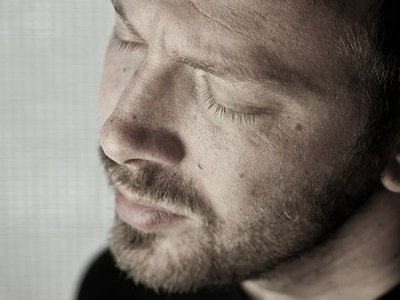One of the particularities of DJing is that takes people outside their own little box for a few hours, without the option of switching channels, changing the song according to their own taste or remaining within their virtual circle. How do you, as a DJ, make use of this freedom? How important are not just the entertainment- but also the curatorial functions of DJs today - compared to other media like radio or print- and online-journalism?
In Germany, the radio isn't playing that much interesting music any more, so maybe the club scene is the last place where you can listen and discover music outside of the internet. We're living in a weird moment in history, it's tough for lots of people. They want to get out on the weekend, they want to escape from life and that's maybe why clubs are still interesting. Clubs are like a small island where you can go and think about anything you want and enjoy being with people, the atmosphere and the sound.
Thanks to developments in the realm of software, DJing, playing live and producing have moved closer together than ever before, allowing DJs to change a track down the tiniest detail. How do you make use of these possibilities in your sets and is there a benefit?
I'm really old fashioned when it comes to that. I just play records one after the other. I have some friends who use new technology and effects and they edit live and stuff and it's not really necessary for what I want to do, and what I like to do. Sometimes it works really well but it depends who's listening. In the end, technology cannot replace good taste, good energy or a smart set from a DJ. So as everything, it's a good thing and a bad thing at the same time because it depends what the DJ does with it.
I prefer a really bad DJ who plays good records. Technically if a DJ is bad I don't care as long the music is good, and the opposite is really boring. If you have a DJ who can play four records at the same time but nothing is going on, it doesn’t make sense. If the technology serves a good idea it can make that idea more powerful, but if you've got no idea, technology won't save you.
Do you feel a crowd is actually able to appreciate the intricacies of complex DJing, if they don't actually know what, precisely, is happening behind the decks?
It depends where you play. It depends on the scene in the country. Yes, there are some really good crowds who come to listen to the music and then there are some people who just want to get fucked up. There is usually about 50-100 people who really understand the music and come to discover and listen to the music. But some people just want to party. it's all part of the scene, you can't separate it.
Do you believe in the possibility of "reading an audience" – and how do you put it into practise? Is the relationship with the dancers a collaborative one or, as Derrick May once put it, a “battle”?
It's a kind of battle every time. It can be tough. Sometimes the DJ wins and sometimes they lose. I know I've won when I feel happy with what I did and when the people are happy. Sometimes the crowd is happy but I'm not, because I didn't make it as good as I could have. But this is the risk you take when you don't prepare the set. Sometimes it's great sometimes it's not. I'm a human, so I can be in a really good mood or a bad mood and sometimes this affects my set.
If the audience is against you and they're not into your music, you have to keep trying to make it better but you only have a short time, it's something like 2 hours. When I started DJing we were playing all night long, but now you have to be on stage at 2 am and you have to rock the party from 2-4 am. It's hard because you need time to adapt, time to feel the people and what's going on, and what you should do. Sometimes it's frustrating because it's too short a time to express yourself. It's a short battle, I think Derrick May is right. Obviously when it's working it's not a battle. When you're playing the right music it's like magic.





